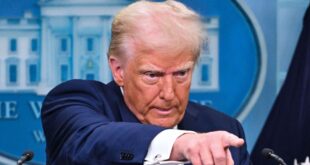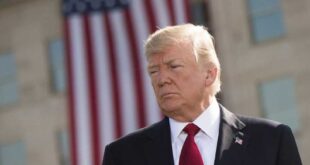By MICHAEL CROWLEY
The crisis over Saudi Arabia’s execution of a pro-Iranian Shiite cleric has brought President Barack Obama’s long-troubled relationship with the Saudi royals to a new low.
U.S. officials said Obama wants to reassure Saudi Arabia that his July nuclear deal with Iran doesn’t mean that the U.S. is abandoning its Sunni Muslim allies and that he believes Saudi cooperation is crucial to ending the Syrian civil war and defeating the Islamic State.
But the events of the past several days suggest that a partnership fueled by oil and shared security interests may be bending toward a breaking point. The relationship could face further strain in the coming months, as the U.S. works to implement a nuclear deal with Iran that Saudi Arabia vigorously opposed.
“The relationship is in terrible shape,” says Elliott Abrams, who served as George W. Bush’s top White House aide for Middle East issues. Abrams says the Saudis have largely given up on Obama and are waiting for a fresh start with his White House successor. “They’re not going to take our advice even if we’re willing to offer it,” Abrams said.
Saudi Arabia, a majority Sunni Muslim country, has long waged a regional proxy war with Shiite-majority Iran. That conflict flared after the Jan. 2 Saudi execution of Nimr al-Nimr, a Shiite cleric whom Riyadh accused of fomenting subversion and terrorism. Protesters then sacked and burned Saudi Arabia’s embassy in Tehran, a response Abrams said was likely directed by Iranian security officials.
The flap comes amid concern among some Washington sources familiar with the Saudi royal family that its leadership has grown erratic and paranoid since the death of King Abdullah bin Abdulaziz last January. He was succeeded by his half-brother, now 80, Salman bin Abdulaziz.
Although the U.S.-Saudi relationship is under unusual scrutiny this week, it has been a troubled one from the start. In his first encounter with King Abdullah at a London conference in April 2009, Obama was caught on camera appearing, to some eyes, to bow to the Arab leader.
Conservatives taunted him for weeks for allegedly kowtowing to the monarch. That June, Obama arrived in Riyadh for his first sit-down with Abdullah. While the photo-op went better — the king greeted Obama by hanging a heavy gold chain worth thousands of dollars around his neck — their private meeting did not. The elderly Saudi monarch flustered Obama by rejecting his request for help jump-starting the Middle East peace process, according to a former senior Obama administration official who dealt with Middle East issues, saying that was Obama’s job.
“The president was like, ‘Wow, what happened here?’ He left with a total rebuff,” said the former official.
After his 2009 meeting with Abdullah, Obama sought to repair the relationship, mindful of the importance of Saudi oil and the kingdom’s help against Islamic terrorism. Tips from Saudi Arabia’s intelligence service, which works closely with the CIA, have allowed the U.S. to stop multiple Al Qaeda plots. In September 2010, Obama approved a $60 million U.S. arms package for the Saudis that would bolster a longtime military partnership.
But any diplomatic momentum was halted by the Arab Spring. Obama’s March 2011 withdrawal of support for the Egyptian dictator and close Saudi ally Hosni Mubarak amid mass protests in Cairo appalled Riyadh. Saudi officials complained to the White House that Obama had abandoned a reliable Arab ally and wondered about his commitment to their own rule, particularly after Obama declared America’s support for democratic movements across the region.
“For King Abdullah, the Mubarak episode was just the worst possible nightmare,” said Martin Indyk, vice president and director for foreign policy at the Brookings Institution and a former Obama Middle East peace negotiator. “He said, ‘Our protector is turning against one of us, and if he does it against Mubarak he’s going to do it against me, too.”
The tension grew worse when Obama worked with Mubarak’s successor, Mohamed Morsi, a leader of the Muslim Brotherhood. The Saudis consider the Brotherhood — whose Egyptian branch has renounced violence — to be a terrorist organization and a mortal threat to their power.
Then came September 2013, when Obama threatened airstrikes to punish the regime of Syrian President Bashar Assad for its use of chemical weapons against civilians, which crossed his self-declared “red line.” Obama ultimately backed away from military action after striking a diplomatic deal to remove Assad’s chemical arsenal. The Saudis took Obama’s balk as a sign that he was not prepared to use force in the Middle East, including against Iran if necessary.
Just as that episode was sinking in, Saudi officials learned from news reports that November that Obama had begun pursuing secret talks with their archenemy, Iran, months earlier. The Saudis opposed the Iran talks on substance — fearing that Obama was planning a strategic shift that would align the U.S. with Tehran and phase out Riyadh as Washington’s main strategic partner in the region — but also on process grounds, furious that Obama had, in effect, gone behind their back to negotiate with Iran in secret.
“It looks [to the Saudis] like we’re trying to do a deal with the Iranians, and they think that’s coming completely at their expense,” said Dennis Ross, a former top Obama White House aide on Middle East issues.
By the time Abdullah died last January, there was little love lost between Obama and the king. Obama did make a concerted effort to start off on a strong foot with his successor, Salman. He interrupted a trip to India (skipping a much-anticipated visit to the Taj Mahal) to attend Abdullah’s funeral and to pay respects to the new king. But when Obama called the region’s Sunni Arab leaders to Camp David for a summit in May meant to reassure them and discuss security cooperation after the Iran deal, Salman skipped the gathering, sending lesser royals in his place.
For all the friction, Saudi leaders still believe their ties to Washington are vital, and aren’t prepared to substitute a new patron, like Russia or China, in place of the U.S. They believe they have worked to maintain a solid relationship with the U.S., including by offering a muted public reaction to the nuclear deal that did not fully reflect their concerns about the agreement.
For his part, Obama continues to pursue policies meant to reassure the Saudi royals that the U.S. is on their side. Obama has assisted the Saudi military campaign against Iranian-backed rebels in Yemen, despite qualms within the administration about civilian casualties and questions about whether the Saudis have a clear endgame. He has also supported efforts to depose Assad, an Iranian ally whom the Saudis despise, although the Saudi regime complains that Obama has not opposed Assad vigorously enough.
And while Obama occasionally urges the Saudis to liberalize their repressive political and legal system, he is careful about criticizing the kingdom’s dismal human rights record. Neither the White House nor the State Department has specifically condemned the execution of Nimr and his 46 fellow alleged terrorists. White House press secretary Josh Earnest said little more than that the U.S. has “raised significant concerns about the human rights environment in Saudi Arabia.”
The best way to mollify the Saudis was to demonstrate toughness against Tehran, Ross said, which he predicted would continue to test Obama’s resolve.
“We should be holding the Iranians to account, and make clear that we’re prepared to respond to things they do in the region,” Ross said.
But many observers fear the relationship could grow worse still, with dangerous consequences for the region.
“We’re now dealing with accumulated distrust,” said Indyk. “You’ve got a headstrong new leadership going its own way. We have to and they have to make a major effort to try to get our relationship back on track.”
 Geostrategic Media Political Commentary, Analysis, Security, Defense
Geostrategic Media Political Commentary, Analysis, Security, Defense





